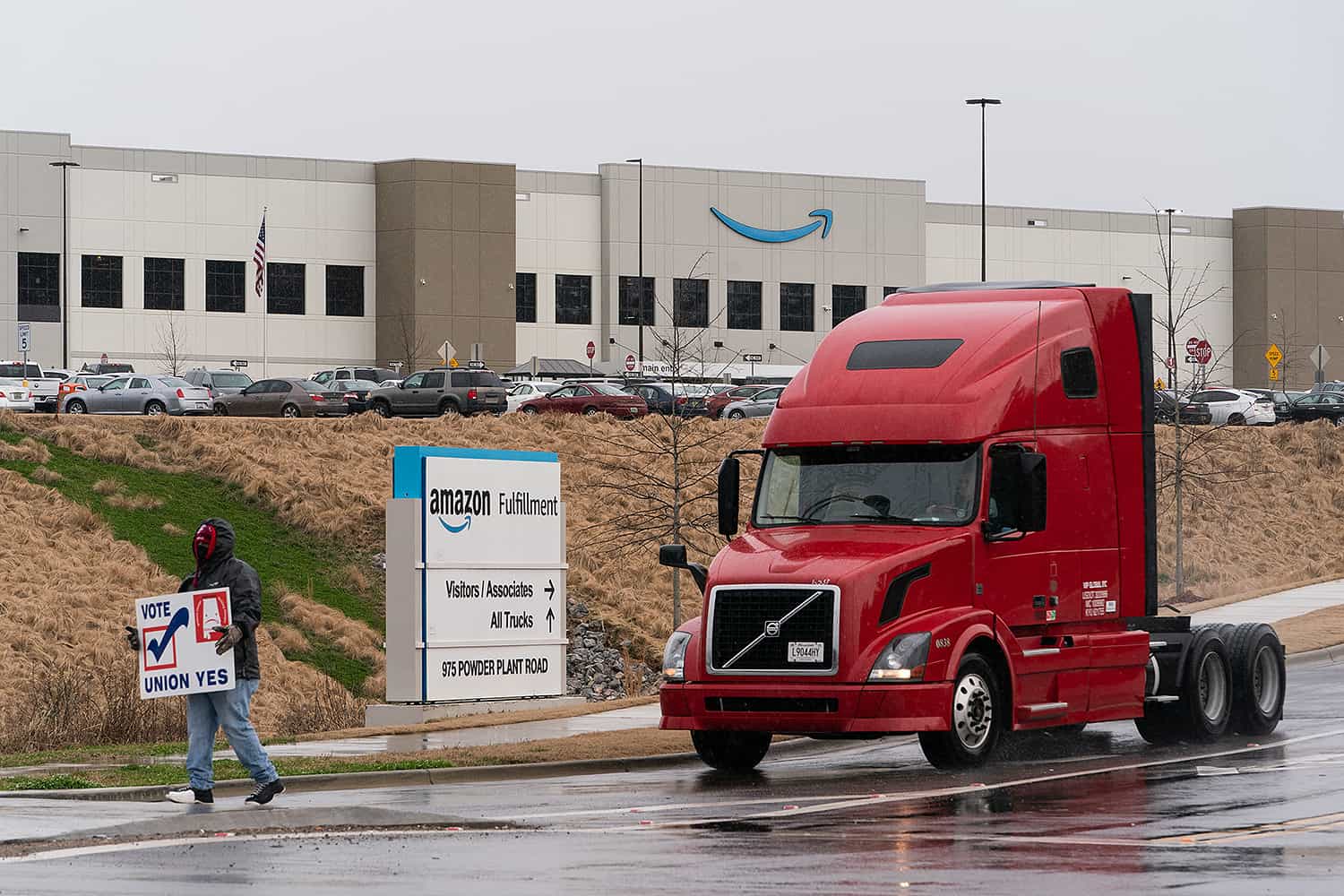Fran Swanson is a student at Harvard Law School.
A New York Times investigation into Amazon revealed a “whole leave system [that] was run on a patchwork of programs that often didn’t speak to one another.” While the company invested heavily in systems that allowed it to get products to customers quickly and earn record profits, it left workers who sought to go on leave and return from leave without support. Some workers were erroneously terminated for not appearing at work and others were chronically underpaid. James Watts, who worked in a Tennessee warehouse before going on paid disability leave, had to sell his wedding ring to be able to afford food and doctors’ bills. In other cases, Amazon is accused of violating state leave laws. Leslie Tullis, who was in the midst of a prolonged domestic violence crisis and needed to move constantly with her children, was fired after submitting a performance review two days late, despite Washington state law protections for survivors of domestic violence and stalking. The state is suing Amazon. Amazon is currently in the midst of a massive internal investigation, sparked by an Oklahoma warehouse worker’s email. Tara Jones repeatedly reported her significant underpayment, which left her behind on bills as she cared for her newborn. She decided to email Jeff Bezos, which led to the discovery that warehouse workers at as many as 179 other facilities may have also been harmed.
Top Republicans in the Florida legislature have proposed that the state withdraw from OSHA’s direct oversight, the Tampa Bay Times reports. “It makes no sense,” said Jordan Barab, a former deputy assistant secretary of labor at OSHA. Any state program would still require federal approval and it would need to “be at least as effective.” The approval process would take years and the creation of a new agency would cost Florida taxpayers millions of dollars. Florida already has the fewest OSHA inspectors per workers of any state. The proposal to withdraw comes after OSHA announced that it would promulgate an emergency rule that would mandate that businesses with 100 or more employees require their employees to be vaccinated or tested weekly. But, the Republican officials championing the proposal have their own history with OSHA. State Senator Keith Perry’s roofing company was fined by OSHA for six worker safety incidents between 2011 and 2017. Senate President Wilton Simpson’s environmental cleanup company was fined when a worker fell off of a beam and died.
Finally, AFL-CIO President Liz Shuler sat down with Time for a wide-ranging interview about the future of organized labor. She noted that, with private sector unionization at an all-time low, the movement is faced with a “silver tsunami”: union membership rates are highest among workers who are 45 to 64 and thus likely to retire in the coming years. But she cited recent polling showing that 77% of young people have a positive view of unions to show that there is tremendous opportunity. Shuler sees “a lot of young people [who] are using collective bargaining as a tool for non-traditional subjects of bargaining, like the carbon footprint” and wants to change the perception that young members must wait their turn before becoming leaders in their unions. Indeed, Shuler finds many synergies between youth-led movements like the global school strikes for climate activism and Black Lives Matter and organizing that takes place at work itself. While the current moment suggests tremendous promise for labor organizing, Shuler acknowledged that in some industries—like behind-the-scenes entertainment work—workers are still fighting for “basic things that we’ve been fighting for for decades, that we should be far beyond in the year 2021.”






Daily News & Commentary
Start your day with our roundup of the latest labor developments. See all
January 16
The NLRB publishes its first decision since regaining a quorum; Minneapolis labor unions call for a general strike in response to the ICE killing of Renee Good; federal workers rally in DC to show support for the Protecting America’s Workforce Act.
January 15
New investigation into the Secretary of Labor; New Jersey bill to protect child content creators; NIOSH reinstates hundreds of employees.
January 14
The Supreme Court will not review its opt-in test in ADEA cases in an age discrimination and federal wage law violation case; the Fifth Circuit rules that a jury will determine whether Enterprise Products unfairly terminated a Black truck driver; and an employee at Berry Global Inc. will receive a trial after being fired for requesting medical leave for a disability-related injury.
January 13
15,000 New York City nurses go on strike; First Circuit rules against ferry employees challenging a COVID-19 vaccine mandate; New York lawmakers propose amendments to Trapped at Work Act.
January 12
Changes to EEOC voting procedures; workers tell SCOTUS to pass on collective action cases; Mamdani's plans for NYC wages.
January 11
Colorado unions revive push for pro-organizing bill, December’s jobs report shows an economic slowdown, and the NLRB begins handing down new decisions